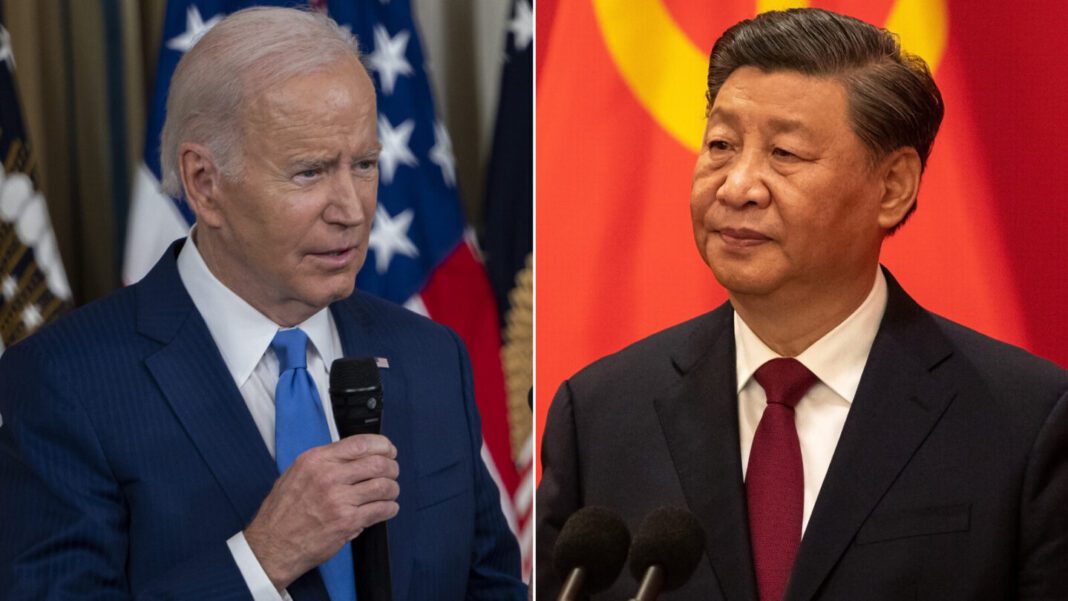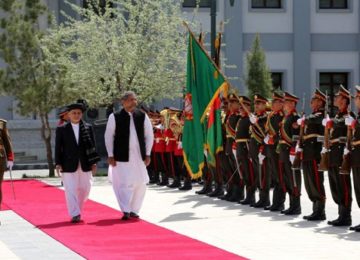The world is currently embroiled in an intense debate over the US-led Indo-Pacific Strategy (IPS) and the China-led Global Security Initiative (GSI). The much-anticipated meeting between US President Joe Biden and the Chinese strongman Xi Jinping at the Indonesian resort Bali (November 14) also took place in the context of these two tit-for-tat initiatives and provided a footnote to the simmering tensions over various issues between the two countries.
“We’re going to compete vigorously. But I’m not looking for conflict, I’m looking to manage this competition responsibly,” Biden said after his talks with Xi on the sidelines of the G20 summit.
In a post-meeting statement, Xi called Taiwan the “first red line” that must not be crossed in US-China relations.
Biden , on his part, said he sought to assure President Xi that U.S. policy on Taiwan, which has for decades been to support both Beijing’s ‘One China’ stance and Taiwan’s military, had not changed.
This reiteration by both signaled a visible break from the hostile rhetoric that has muddied their bilateral relations since Biden assumed Presidency. House President Nancy Pelosi’s controversial visit to Taiwan in August, too, had fueled tensions and triggered unusual rage in Beijing.
The latest exchange between the two leaders offers yet another opportunity to dissect the US-led Indo-Pacific Policy (IPS) and the Chinese response to it – the Global Security Initiative (GSI).
The IPS envisioned by the US directly confronts China and aims to curtail China’s economic and military influence in the region. Pakistan very much lies in the area covered by the Indo-Pacific strategy, given her strategic partnership with China, and can neither remain oblivious to the developments, nor remain unaffected. Pakistan, therefore, has to grasp the essentials of this new tussle between the leading powers of the world and must leverage its elements of national power to advance its for advancing its own national interests.
- A free and open Indo-Pacific
- Building connections within and beyond the region
- Driving prosperity
- Bolstering security; and
- Building collective resilience to transnational threats
How to achieve these objectives?
- Cyber cooperation amongst regional countries
- Closer military cooperation
- Counter-terrorism cooperation
- Free navigation at sea
China’s Response
The Chinese response to the Indo-Pacific Strategy is a six-point Global Security Initiative (GSI):
i) Work for common, comprehensive, cooperative, and sustainable security
ii) Respect the sovereignty and territorial integrity of all countries
iii) Abide by the purposes and principles of the United Nations Charter
- Uphold the principle of indivisible security
- Resolve differences and disputes between countries through dialogue and consultation.
iv) Maintain security in both traditional and non-traditional domains
On the face of it, both initiatives aim to expand and promote regional connectivity and strengthen maritime, cyber and conventional security. Counter-terrorism is the other common denominator. The spirit is more cooperative than confrontationist- at least on the face of it. Both powers see multilateralism as the best tool to further their narratives on multiple geo-political issues.
However, a few major divergences seem to be also visible;
- The IPS came on the heels of the China-focused China Mission Center that the US announced in October 2021
- The US initiative projects India as the major plank of the IPS (India is also part of the QUAD, and is closely linked to all members of AUKUS and FIVE EYES intelligence and security alliances. Another forum that binds India with these countries is Indo-Pacific Economic Framework for Prosperity launched on May 23, 2022)
- Exclusion of China and its regional allies from some of the region-focused initiatives
- The IPS is marine-security focused while the GSI is anchored in China’s Belt and Road Initiative (BRI) across the Asian and African continents
The ambitious Build-Back-Better-World initiative – launched in June 2021 in Glasgow, Scotland, by the G7 nations – was the offspring of the IPS and more of a response to the Chinese BRI than a practical approach to promote trade connectivity, economic cooperation and poverty alleviation in developing nations, something the Chinese leadership had already embarked on since 2013. It was also backed up by the establishment of the Asian Infrastructure Development Bank (AIDB).
The Chinese Foreign Minister Wang Yi, for example, dubs the IPEF “as an attempt to further economic decoupling from China. Wang Yi argued that this initiative, and the US Indo-Pacific strategy as a whole, “created divisions and incited confrontation”.
The US obviously has the military might and muscle to influence allies and partners across the world but China has clearly leveraged its economic capacity to push for trade and economic cooperation through BRI.
It, therefore, makes logical sense to ignite a collaborative spirit and collectively push for inclusive economic cooperation, trade promotion as well as security cooperation rather than stoking conflict and confrontation, based on the dated cold war assumptions. Such a paradigm, regardless of the system that governs that specific country, can only be a WIN-WIN for every nation as opposed to exclusionary measures that target this or that country.
Mutual respect for sovereignty, territorial integrity and respective governance systems can ward off considerable hostility in inter-state relations and push indiscriminate economic cooperation across the globe.
by Imtiaz Gul








